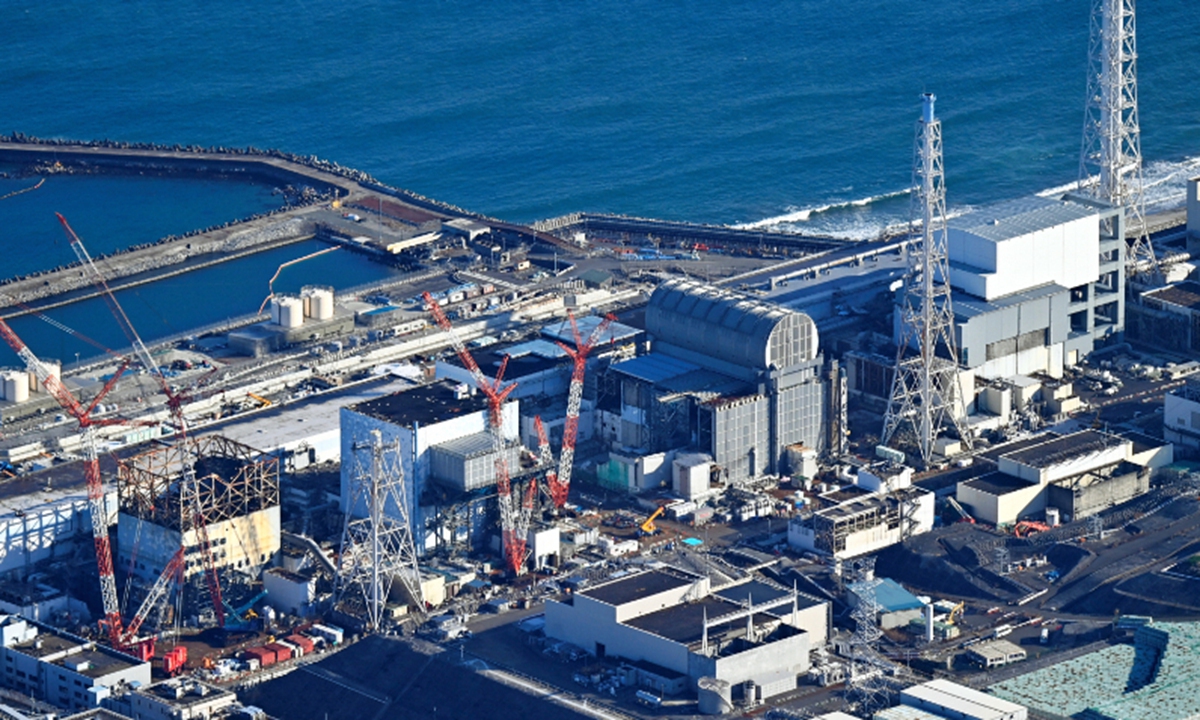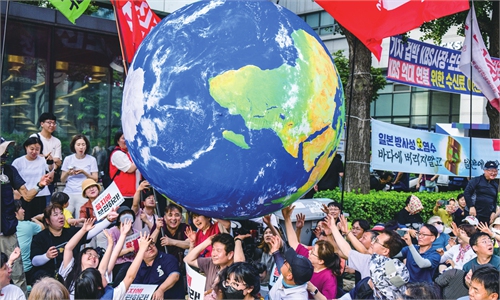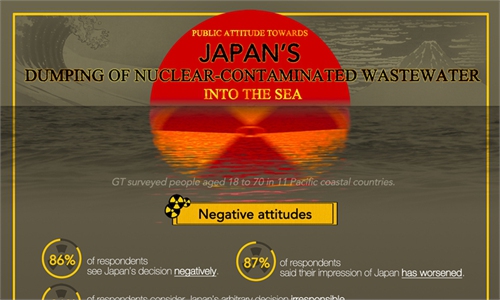Insiders, FM disappointed over hastily released IAEA report, Japan's irresponsibility

Aerial photo shows the damaged reactors at Fukushima Daiichi nuclear power plant on January 19, 2023, in Fukushima, Japan. Photo: VCG
Several Chinese experts on nuclear safety expressed their disappointment at the International Atomic Energy Agency's (IAEA) hasty release of the assessment report on the plan to dump nuclear-contaminated wastewater from Japan's Fukushima Daiichi Nuclear Power Plant, noting that despite Japan's deliberate efforts to use the report to create an image of "harmlessness," the hazards of dumping the nuclear-contaminated wastewater are indeed real.
Liu Senlin, an expert with the China Institute of Atomic Energy who participated in the IAEA's technical working group for the assessment, told the Global Times on Thursday that the report, released in the name of the IAEA director general, was released without sufficient consultation with the experts in the technical working group.
He believes that the report does not represent the IAEA's recognition of the legitimacy of Japan's decision to dump the treated wastewater into the ocean, nor does it represent the IAEA's approval or authorization of Japan's dumping plan.
The report, titled "IAEA Comprehensive Report On The Safety Review Of The Alps-Treated Water At The Fukushima Daiichi Nuclear Power Station," was released on Wednesday, announcing that Japan's dumping plan meets the IAEA's safety standards.
After it was released, the report led to a backlash in some countries that will be impacted by the dump.
"China once again urges Japan to act responsibly for marine environment and people's life and health, stop pushing through the ocean discharge plan, and imposing unpredictable risks on the international community," Wang Wenbin, the spokesperson of the Chinese Foreign Ministry, said at the routine press conference on Thursday.
Liu pointed out that the IAEA conducted the assessment and evaluation at the request of the Japanese government after it unilaterally made the decision to dump the nuclear-contaminated wastewater.
"However, it did not include other possible disposal options beyond discharge, nor did it address the effectiveness and long-term reliability of the water purification system," he noted.
Additionally, the IAEA's assessment was of an international peer review and was mainly based on the data and information provided by the Japanese side for assessment and the seeking of recommendations.
"From the perspective of the IAEA's assessment results, its position clearly leans more toward the Japanese government," an anonymous Chinese nuclear safety expert with official ties told the Global Times on Thursday.
The IAEA itself is eager to resolve the issue of Fukushima's nuclear-contaminated wastewater as soon as possible because one of its mandates is to promote the peaceful use of nuclear energy globally, he said. "The other reason is that Japan has significant influence within the IAEA," he said.


